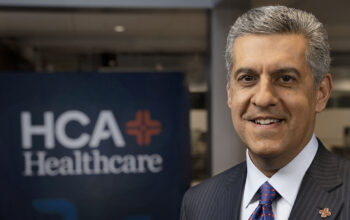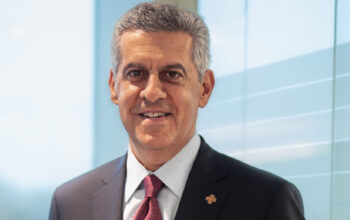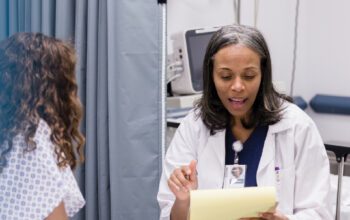HCA Healthcare’s unique ability to partner with key organizations and tap into vital resources ensures our patients and colleagues are cared for in the ways that matter most.
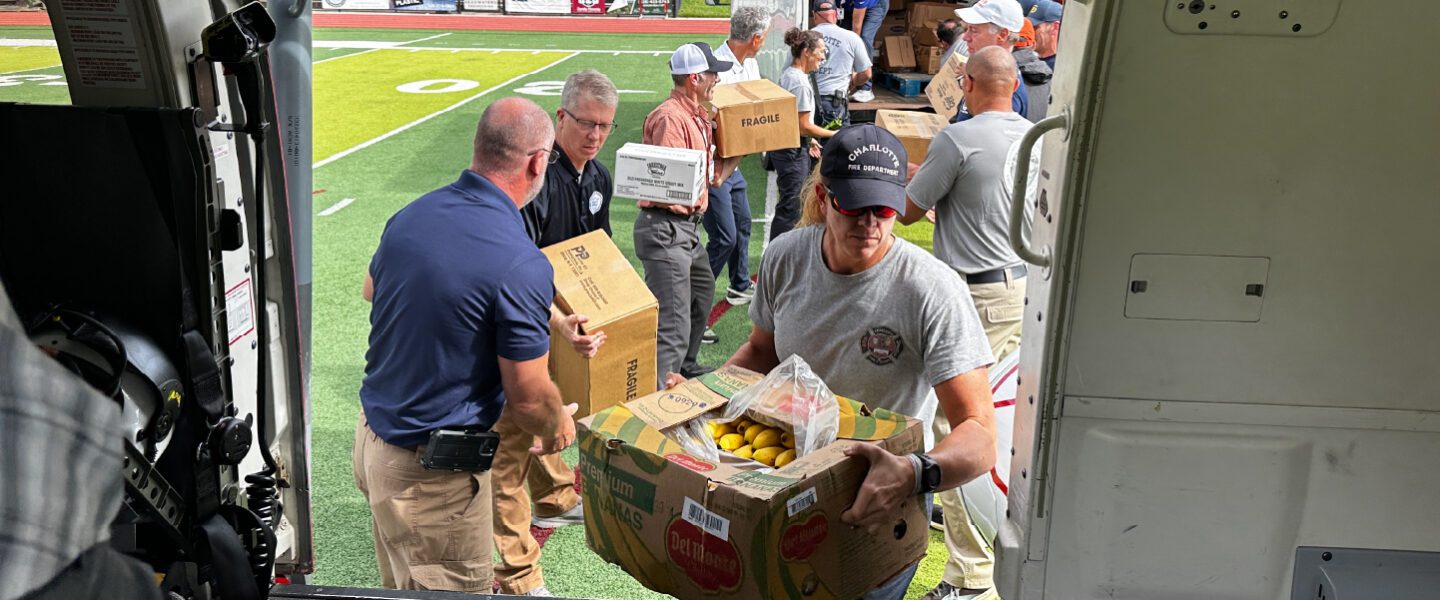
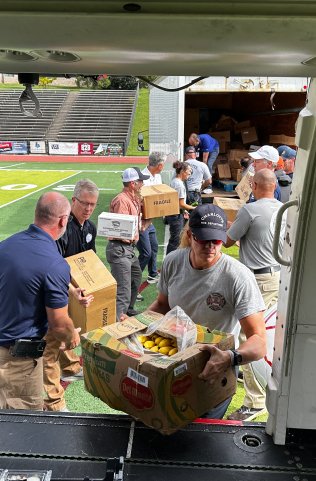
HCA Healthcare’s ability to step up and stand strong against disasters is reinforced by our expansive network of partnerships.
Hurricanes Helene and Milton underscored just how valuable our partnerships with federal and local agencies are in times of crisis. From pre-hurricane preparations to post-disaster recovery, our colleagues rely on HCA Healthcare’s trusted relationships to ensure our patients receive continuity of care and that our facilities are safe havens in the community.
HealthTrust Performance Group, HCA Healthcare’s supply chain engine, pulled off near miracles in sourcing supplies, water and other critical materials for our people and patients. At critical moments during the storms, vendor partners assisted with patient transport services and additional supply chain needs. Relationships with community entities also enabled us to provide housing, water, fuel and commodities to colleagues so that they could continue to serve.
Relying on trusted partnership starts from the inside out. From the 400 sister-facility nurses and more than 40 physicians who provided support to Mission Health caregivers in Asheville, to the 42 Incident Response Team members deployed during both hurricanes — our teams stood in the gap for fellow colleagues in need.
Caring like family during times of crisis extends to our patients, our colleagues and our neighbors. The communities where we work know the power that HCA Healthcare can bring to an emergency. When city water systems failed in Georgia, area officials reached out to HCA Healthcare. We were able to supply a generator for a water pumping station so that an entire community could have access to water.
“It’s a two-way street,” says Melissa Harvey, assistant vice president of Enterprise Emergency Operations. “That’s really the beauty of working for HCA Healthcare. We’re not just making sure our hospitals are okay. We’re here for our people and patients.
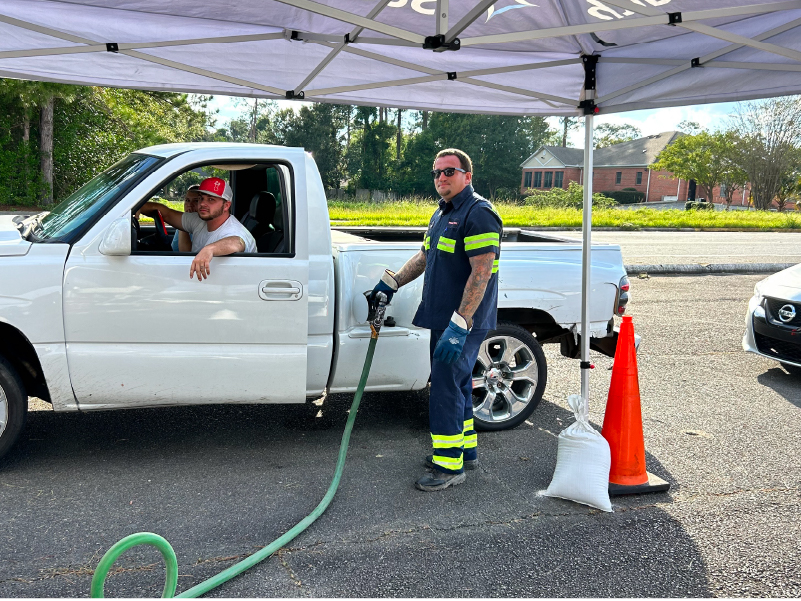
Colleagues at Memorial Satilla Health in Waycross, Ga. arrive on site to get gas and other necessities deployed by HCA Healthcare to the facility.
Our colleagues did amazing things under extremely difficult conditions. In the worst times, our communities, patients and colleagues turn to us. And we show up.— Hugh C. Tappan, President, South Atlantic Division
Helping hands across HCA Healthcare
Collaboration across the organization is crucial during a crisis. When Helene made headway into northern Georgia and North Carolina, colleagues at sister facilities remained alert and on call.
Hundreds of HCA Healthcare nurses were deployed. They traveled from nearby Tennessee, Georgia and Virginia, and as far away as Kansas, Utah, Texas and California. More than 40 physicians were also dispatched to help serve the western North Carolina region.
When Milton hit Florida one week after Helene, more than 200 colleagues were deployed to assist in Hurricane affected areas. In addition to the highly experienced Incident Support Team members who lend their specialized skills during disasters, HCA Healthcare provides support directly to colleagues to ensure they feel able to serve, even as they themselves may be impacted by the disaster.
Following both hurricanes, HCA Healthcare established mini marts giving colleagues access to food, water, cleaning supplies and personal hygiene products. Portable showers and laundry units were deployed for colleagues without access to water, and fuel trucks arrived for colleagues and first responders.
In addition, the HCA Healthcare Hope Fund is a 501 (c) (3) charity run by colleagues, for colleagues. Those who give to the Hope Fund support fellow colleagues and their families facing financial hardship due to natural disaster, illness or injury, domestic violence, death of a loved one or other unexpected situations. As of Nov. 7, 2024, the Hope Fund fulfilled more than 3,300 grant requests between Hurricanes Helene and Milton, totaling more than $2.8 million to date.
“The Hope Fund is in it for the long haul,” says Joe Flynn, AVP, community engagement and president, HCA Healthcare Hope Fund. “As our major disaster history shows, we expect to still be helping colleagues in Asheville and other communities that have had the greatest losses and needs more than one year from now.”
Amazing relationships strengthened in crisis
When communities endure a disaster the magnitude of Helene or Milton, recovery often requires a combination of local, state and federal assistance.
Helene’s impact left a swath of destruction that will forever change the physical landscape of western North Carolina. Greg Lowe, president of HCA Healthcare North Carolina Division, which includes Mission Health in Asheville, says the terrain there made any response especially challenging.
“Our region’s geography made this a unique situation in terms of access to critical resources. Roads are narrow, curvy and built on the sides of mountains or steep terrain,” he explains. “The rain at higher elevations was forced down towards any valleys, with the rain and mud washing out portions of major interstates, bridges and backroads, making areas quickly impassable or inaccessible for long periods of time.”
Because of the difficulty in accessing many areas, Mission Health hospitals relied on HCA Healthcare to fill the gap until state and federal agencies were able to drive through damaged roads with welcome reinforcements. At that time, the Administration for Strategic Preparedness and Response deployed hundreds of medical, public health and disaster response personnel to assist throughout western North Carolina.
Greg Lowe says initial efforts were boosted by their western North Carolina colleagues — neighbors, community organizations, faith-based institutions, emergency management, law enforcement and first responders.
“The outpouring of support from our community was just astounding,” he says. “Our HCA Healthcare vendors including Davis Water, MSS and First Onsite also showed up in big ways to pump water, manage our central energy plant and clean or perform any remediation work, respectively.”
In the days following Helene, federal Disaster Medical Assistance Teams helped to treat patients in temporary emergency areas set up outside Mission Hospital for noncritical patients.
“Our goal was to free up resources and relieve our hard-working teams, so that we could address the most urgent medical needs of our community and ensure we could take in more patients as rescue and recovery efforts continued,” Greg says.
HCA Healthcare’s mass transport provider, Global Medical Rescue (GMR), was involved in both hurricanes. In addition to assisting with transporting advanced and basic life support patients, GMR provided buses to transport nurses deployed to serve in hurricane-damaged areas. They were also provided with transportation from their hotels to the hospitals.
Behavioral Health Response teams, including therapy dogs from Methodist Healthcare in San Antonio, Texas and GMR, rounded on the Air National Guard, mortuary teams and colleagues at mass fatality sites and within the Mission Health hospitals.
“We couldn’t do this without our national partners like GMR or our colleagues from the State Department of Health. We couldn’t do it without our federal partners that came in and helped us secure the site and manage the initial volumes,” says Michael Wargo. “It’s pretty amazing to see how relationships that we formed ahead of this come into play during a crisis like this.”
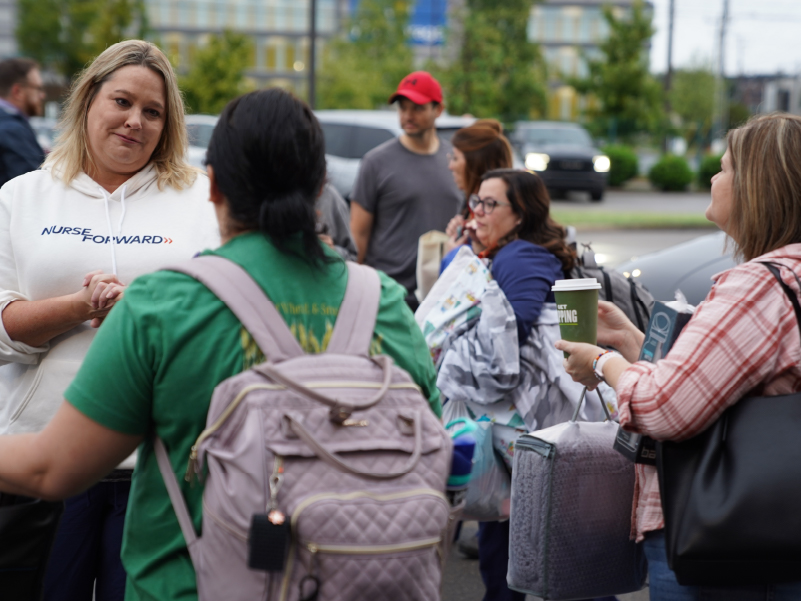
Sammie Mosier, senior vice president and chief nurse executive (far left), speaks with TriStar Division nurses on September 29 as they load up to travel to Mission Health and support care teams in the wake of Hurricane Helene.
I work with super heroes. Despite the challenges our colleagues faced, they came to work through difficult circumstances to take care of our patients and community, and
HCA Healthcare was there for us through it all. I’ve never been so proud to be a part of this company and of the work done by my hospital and division.— Joanna Conley, Chief Executive Officer, Doctors Hospital of Augusta
Neighbors, not competitors
Milton precipitated the largest scale of pre-storm patient movement and evacuations in the history of HCA Healthcare. About 400 patients were de-risked from our vulnerable hospitals in Florida. Most patients were transported to our sister facilities, but some of our most critical patients went to neighboring non-HCA Healthcare hospitals.
Other hospitals and facilities become neighbors in these moments. Knowing what’s going on and what’s needed across the community means better help arriving to those in need.
“We stress with our emergency managers across the company that we want them to build those relationships through established healthcare coalitions,” says Melissa Harvey.
Emergency managers across the company lead healthcare coalitions in their communities, which helps establish trusted relationships with neighboring health systems.
As Milton unfurled its wrath on Florida, emergency managers across healthcare systems conferred in Pinellas County to compare notes and assess the needs. If neighboring hospital systems didn’t have power or water, HCA Healthcare stepped in to assist. When it comes to caring for patients, it’s an all-hands approach.
